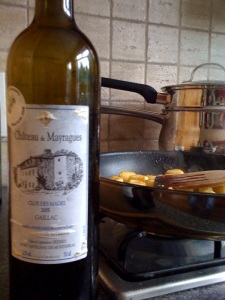One of our customer’s favourites – Westend Estate – last weekend scored a remarkable achievement by winning the “The Wine Society Perpetual Trophy for Most Successful Winery” at the 2010 Sydney International Wine Show. This was awarded on top of a huge haul of nine medals at Australia’s most prolific wine show.
Westend Estate Wines Director, Bill Calabria, collected the award on the day and said the trophy and awards reflected the winery’s commitment and investment in the Riverina region. Enthused Calabria also described the win as a “fantastic note to start the year.” Westend Estate Wines was established in 1945 by Bill’s parents, Francesco and Elizabeth Calabria. The newly arrived young Italian migrants bought with them expertise of traditional Italian cooking and the love of making wines. These were the foundations laid out for what would become one Australia’s most interesting family winemakers.
Today the winery harvests 14,000 tonnes of grapes per annum, exports to over 30 countries around the world and employs over 40 people, including six members of the Calabria family.
 Out of the frying pan, into my glass
Out of the frying pan, into my glass